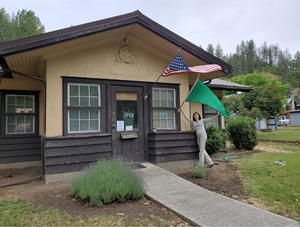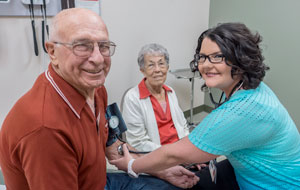The Rural Monitor
Articles by State: Idaho
For more information and resources, see the
Idaho state guide.

July 24, 2024
For decades, community health workers (CHWs) provided their services outside usual healthcare reimbursement models. In recent years, with research supporting CHWs as professionals effectively assisting patients with navigating health-related social determinants, federal and private payers are exploring reimbursement mechanisms. Four rural healthcare organizations share both the impact and the continued sustainability challenges — and successes — of their CHW programs.
Read More

April 10, 2024
While an estimated 20% of Americans live in rural areas, 40% of traffic deaths occur on rural roads.
Read More

February 8, 2023
Across the rural West, an awareness of the health impacts of poor air quality – and how to minimize those impacts – is growing.
Read More

June 15, 2022
For the 240,000 rural Americans with complete kidney failure, it's likely that very few knew they even had kidney disease. According to the Centers for Disease Control and Prevention, kidney disease is usually silent; 90% of people with kidney disease don't know they have it. With research pointing to the high costs of kidney disease for pediatric and adult patients alike — mostly covered by Medicare — experts and researchers discuss rural disparities around access to disease-stabilizing treatment and to renal replacement therapies.
Read More

September 11, 2019
Healthcare workers are four times more likely to be seriously injured on the job than other professionals. Research, tools, and campaigns are equipping rural hospital leaders to better protect their employees and develop a culture of safety.
Read More

May 30, 2018
Super-utilizers are those patients who are hospitalized multiple times each year and, due to circumstances outside their control, are unable to make the changes needed to keep them out of the ER. Three rural Accountable Care Organizations (ACOs) are working on reducing these readmissions and improving their super-utilizers' health.
Read More

January 24, 2018
Stephanie Orr, the CNO of an 18-bed CAH in Idaho, shares what it's like to become a leader much sooner than planned and emphasizes the importance of working the front lines.
Read More

November 13, 2017
In rural communities, a little bit can go a long way. Learn how three Federal Office of Rural Health Policy awardees have used their funds to enhance healthcare access and create sustainable change.
Read More

July 12, 2017
Colorectal cancer stands out as a cancer with increased incidence and mortality rates in rural areas – rates that are likely influenced by lack of screening. Using different approaches, two rural healthcare organizations in Idaho and Kentucky show how they are saving lives by improving colorectal cancer screening rates in their communities.
Read More

March 22, 2017
Resistant bacteria, or "superbugs," are a cause of major medical illness and death. Government and accreditation agencies, as well as infectious disease experts, believe hospital antibiotic stewardship programs are the answer to blunting the impact and development of these germs. Despite limited resources, rural and Critical Access Hospitals are activating their stewardship programs.
Read More










